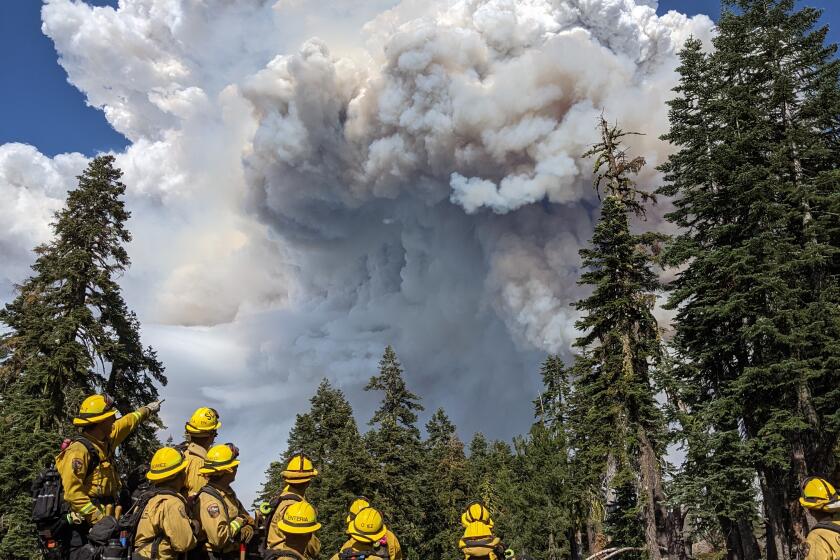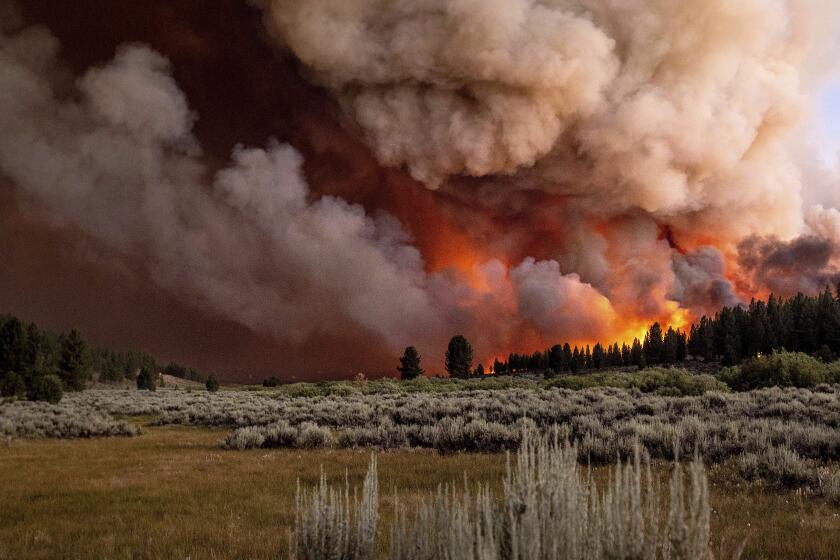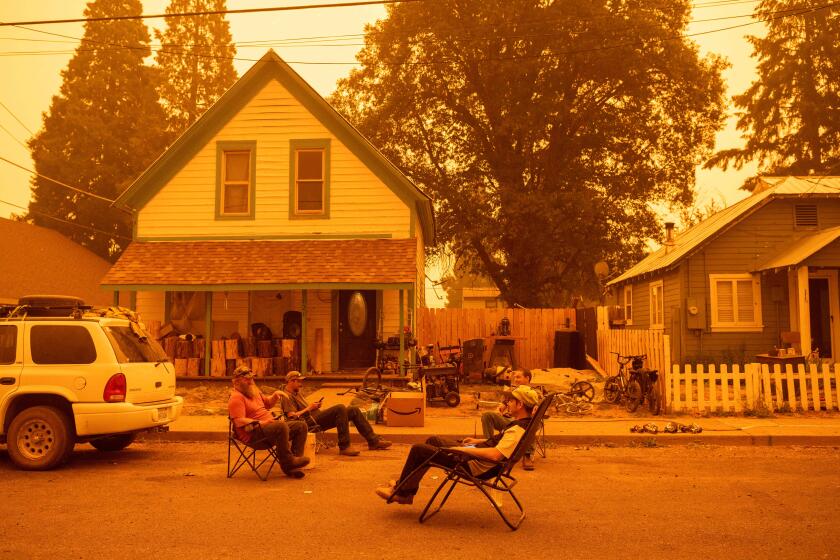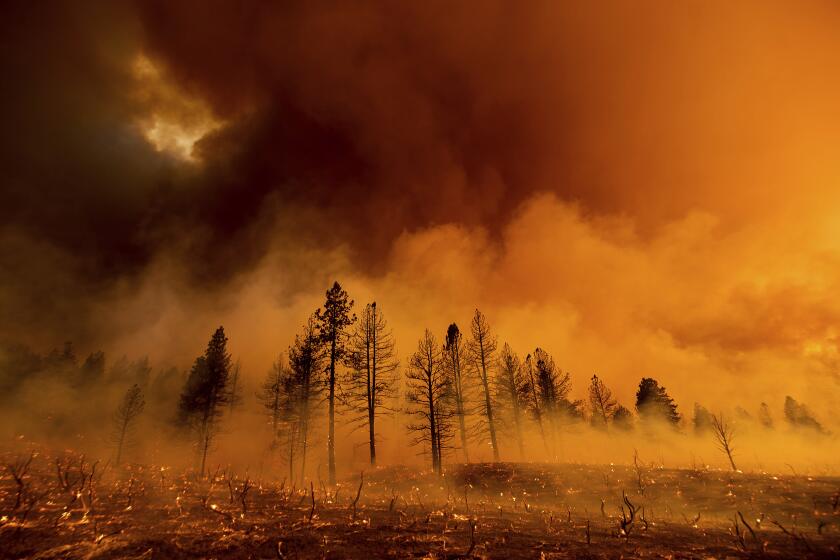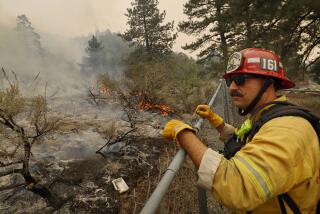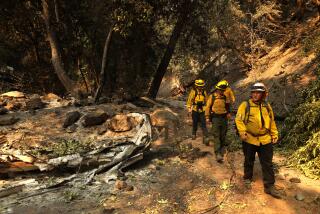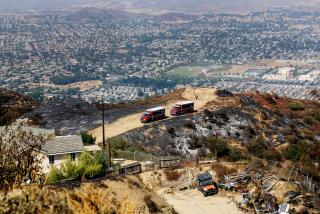More than 40 structures burn and thousands more are threatened as Dixie fire keeps growing
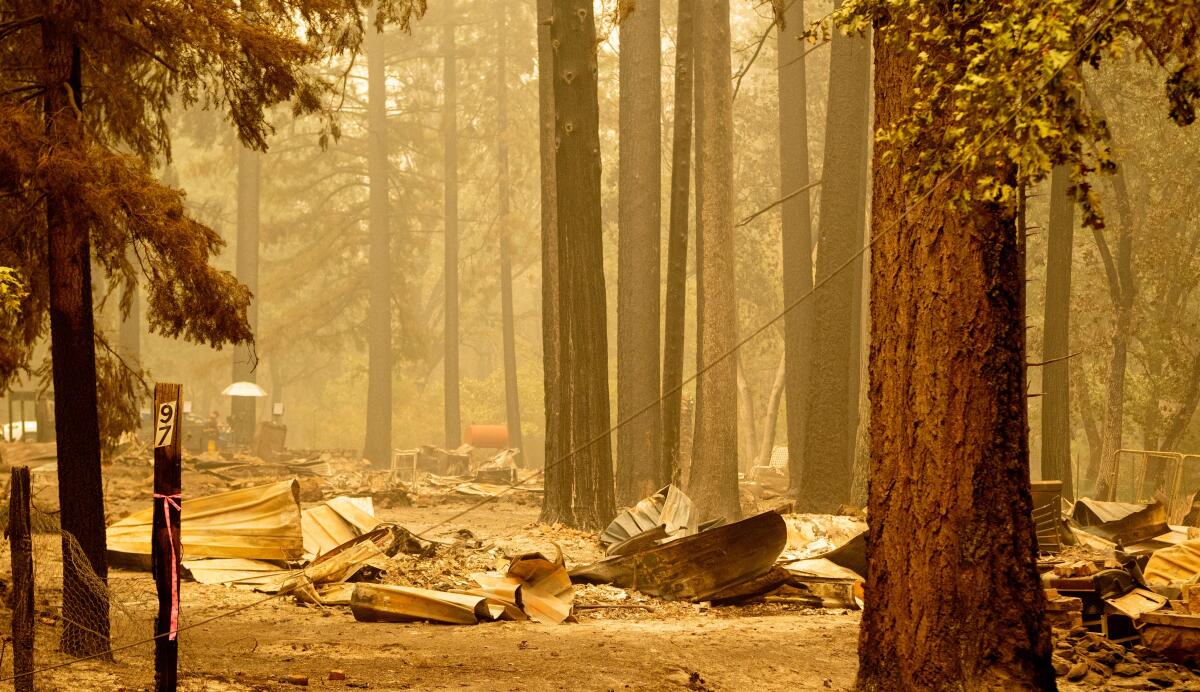
A growing number of homes and structures have been destroyed by the Dixie fire, which on Thursday continued to swell as crews struggled to gain a foothold on the flames.
More than 40 structures have burned in the monstrous fire, and another 10,700 remain under threat, according to the California Department of Forestry and Fire Protection. At least 20 minor structures, such as outbuildings and sheds, have also gone up in flames.
At 221,504 acres, the multi-county fire is now the 13th largest wildfire in the state’s recorded history, according to Cal Fire, up from the No. 15 spot just days ago. It is burning an area larger than New York City.
For the third day in a row, the Dixie fire remains only 23% contained.
“It’s kind of hard to wrap our heads ... around a 220,000-acre fire,” Plumas National Forest Supervisor Chris Carlton said during an incident update Wednesday evening, noting that the fire’s perimeter was more than 80 miles. “That’s a lot of fire out there.”
The conditions that paved the way for the Dixie fire’s growth are becoming more common.
Crews on Thursday are focused on laying containment lines and defending nearby communities, officials said, while up against increasingly challenging conditions.
Temperatures are expected to climb to the mid-80s in the coming days, and humidity levels are rapidly dropping, according to the National Weather Service.
Fire behavior analyst John Cook said the forecasted hot, dry weather indicated a likely increase in fire activity.
“We’re dealing with very critical fuel conditions right now — the fuels are much drier than they would be normally this time of year,” Cook said. “And when they’re dry, they’re much harder to contain.”
Much of the West has been plagued by extreme heat and drought due to the worsening climate crisis, which is drying vegetation and feeding massive fires earlier in the year. To date, 82 large fires have burned nearly 1.7 million acres across 13 states, the National Interagency Fire Center said.
Already this year, there have been more than twice as many acres burned than during the same period last year — and hundreds more fires.
Cal Fire Butte County spokesman Rick Carhart said the changing weather conditions would likely lead to the formation of another large pyrocumulonimbus cloud over the fire Thursday.
The vertically growing clouds are unstable and intensely hot and can generate strong gusts of wind that send sparks flying. Already, multiple spot fires have been ignited by Dixie’s wind-whipped embers.
The volatile clouds also can create their own lightning, which has the potential to spark more flames. But Carhart said officials did not want residents to panic if they saw a massive cloud forming.
“That’s just the fire continuing to consume itself within the interior of the fire,” he said.
A wildfire photographer captured the Martian pall in the Plumas County towns of Greenville and Twain over the weekend and said it was the darkest smoke-tainted sky he’d ever seen.
The Dixie fire has spurred mandatory evacuations across large portions of Butte, Plumas and Tehama counties, with nearby Lassen County placing residents on high alert.
Those who remain are threatened not only by flames but also thick, noxious smoke. Cook noted that smoke generated by the fire was working its way down into surrounding valleys.
Smoke from Western fires — including the Dixie fire and the 413,000-acre Bootleg fire in Oregon — has already traveled as far as the East Coast.
In Paradise, near the Dixie fire’s southern edge, air quality was hovering at the extremely toxic level of 874 on Thursday morning, according to EPA air monitoring site AirNow.
Experts say people near wildfire smoke should stay inside with their doors and windows shut.
As wildfires ravage hundreds of thousands of acres across California, more is being learned about the damaging effects of their smoke.
Wildfire photographer Josh Edelson, who has been taking pictures of the Dixie fire, said this week that it was one of the darkest fires he had ever seen.
“It was hard to even capture in a photo,” he said. “At 4 in the afternoon, it was like it was midnight.”
Edelson described ash flakes the size of dimes and a smoke smell so powerful it was “like sticking your head right into a campfire.”
More than 5,900 firefighters are now battling the Dixie fire, officials said.
The task at hand is enormous, and residents hoping to return to their lives and homes will have little choice but to wait.
“I recognize the fact that we need to get folks back to their houses,” Plumas County Sheriff Todd Johns said. “But I will ask that you give me a little bit of patience.”
More to Read
Sign up for Essential California
The most important California stories and recommendations in your inbox every morning.
You may occasionally receive promotional content from the Los Angeles Times.
